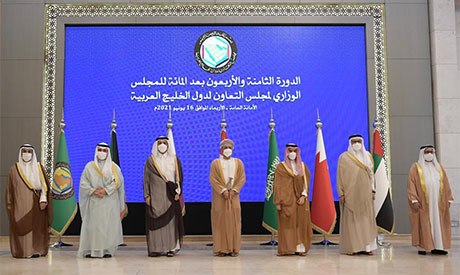The Gulf Cooperation Council (GCC) has reiterated its strong support for Egypt and Sudan in their ongoing water rights dispute with Ethiopia over the Grand Ethiopian Renaissance Dam (GERD). During a joint ministerial meeting held in Riyadh on March 3, 2024, GCC Secretary-General Jasem Al-Budaiwi declared that the water security of Egypt and Sudan is "an integral part of Arab national security."
Al-Budaiwi emphasized the GCC's opposition to "any action or measure that infringes upon the two countries' rights in the Nile water." This statement comes amidst heightened tensions between Egypt, Sudan, and Ethiopia regarding the filling and operation of the GERD, a massive hydroelectric dam project on the Blue Nile River in Ethiopia.
Egypt and Sudan, which rely heavily on the Nile for their water needs, have expressed concerns that the GERD could significantly reduce their water flow. They have called for a legally binding agreement on the filling and operation of the dam, while Ethiopia maintains its right to utilize the Nile for its own development purposes.
The GCC's stance aligns with Egypt and Sudan's position, potentially bolstering their diplomatic efforts in the Nile water negotiations. Al-Budaiwi also stressed the GCC's commitment to finding a solution that benefits all parties involved, emphasizing the need for an agreement based on international law and the UN Security Council presidential statement issued in September 2021.
The statement, adopted unanimously by the Council, called on all parties to "engage constructively" and "refrain from taking any unilateral actions that could jeopardize the negotiation process." It also urged them to "reach a mutually acceptable agreement under the auspices of the African Union."
The GCC's support for Egypt and Sudan is not solely based on water security concerns. The organization shares strong political and economic ties with both countries, and considers them key partners in the region. Egypt, in particular, is seen as a crucial pillar of Arab stability and security.
The joint ministerial meeting also served as a platform to discuss broader regional issues, including security challenges and economic cooperation. The GCC and Egypt reaffirmed their commitment to working together to address these challenges and promote regional stability and prosperity.
While the GCC's backing may offer some diplomatic leverage to Egypt and Sudan, the Nile water dispute remains complex and requires continued negotiation and compromise from all parties involved. Reaching a sustainable solution that addresses the water needs of all Nile Basin countries will be crucial for ensuring regional stability and development.

